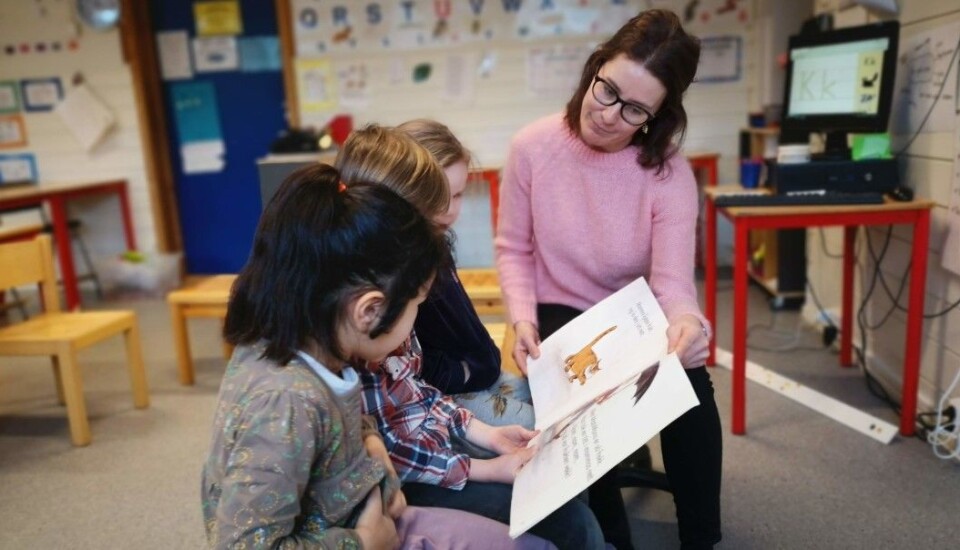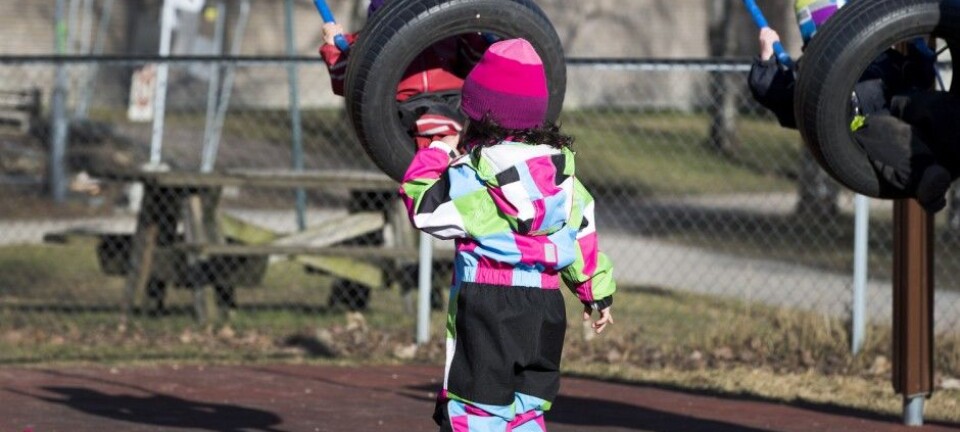This article was produced and financed by University of Stavanger - read more

Perceived emotional support from the teacher is associated with higher achievement in reading
A recent Norwegian study shows strong associations between first grade students feeling liked and respected by their teacher, and their achievement in reading.
Almost 3000 Norwegian first graders have participated in the study, which aim was to examine the associations between perceived teacher emotional support, reader self-concept, and reading achievement.
When comparing the 7-year olds’ self-reports on how they experienced their relationship with their teacher and their self-concept as readers, with data on their reading achievement, researchers from the Norwegian Reading Centre, University of Stavanger, found a clear association between perceived emotional support from the teacher, and the students’ achievement in reading.
Self-concept is related to academic achievement
"We had a hypothesis that there could be a direct association between perceived teacher emotional support and reading achievement. This was not the case. However, we did find a significant direct association between perceived teacher emotional support and reader self-concept, and further between reader self-concept and reading achievement. Additionally, we found an indirect association between perceived emotional support and reading achievement through the child’s reader self-concept," explains postdoctor Maria Therese Jensen, who has a PhD in Psychology.
In other words: Students who felt liked and respected by their teacher, also reported on having a higher reader self-concept – which again related positively to their reading skills.
Reading is fundamental for all future learning

In short, their findings show that students who feel seen and respected by their teacher, are also better readers."Given that reading is fundamental for all future academic learning, it is important to gain knowledge on how children’s relationship with their teacher is related to their reading achievement," Jensen says.
Entering a positive spiral
Most adults will recognise the explanation behind why there is a link between feeling liked, having a high self-concept, and mastering a skill such a reading.
We all construct believes in ourselves in relationship with others. As adults in the workforce, we are affected by the relationships we have with our co-workers and managers.
"This is also the case for children. The teacher is a tremendously important adult in most children’s lives. If you are a child and feel like your teacher doesn’t care about you, you tend to give up a little. The same goes if you feel like everybody else performs better than you. Your self-concept declines and as a result, you achieve less," Jensen explains.
Students reported on their own experiences
An important aspect of this study is that the 3000 7-year olds themselves have answered questions related to their relationship with their teacher and on how they perceived their own reading.
Aided by a research assistant, the children used an ipad and pressed corresponding emojis to answer questions such as whether they thought their teacher was a good friend, if the teacher helped them when they had problems, and whether the teacher appreciated them and cared about them.
They also answered questions on how they would grade their reading skills, how good they were at reading long stories, how their reading compared to the other students in their class, and if they found reading difficult.
Traditionally, studies of this kind have relied on classroom observation and reporting from neutral outsiders or by teachers.
"The idea has been that young children may not be able to provide reliable scores. A drawback of using observation in these kinds of studies, however, is that observations don’t provide us with the children’s subjective experiences, which largely influences their behaviour. It is really interesting to see that children as young as seven years of age can provide reliable answers in a study of this kind," Jensen says.
Different perceptions amongst students in the same class
It is often said that teachers are either supportive or not supportive, and one might therefore assume that students from the same class, who naturally share the same teacher, would report on similar levels of emotional support.
Perhaps surprisingly, then, this study reveals that students who attend the same class in fact have differing perceptions of their relationship with the same teacher.
"A possible explanation is that teachers may tend to treat students differently, and that they support some students more than others. This being said, we know that Norwegian teachers in general emphasise the importance of developing positive relationships with their students," Jensen says.
She adds that some Norwegian teachers may feel that they ought to be stricter or run a more disciplinarian classroom environment. However, in order to create a positive learning environment, it is essential to create positive relationships between the teacher and the students.
Relationships are important to learning
It is important to note that the cross-sectional design of the study did not allow the researchers to determine whether emotional support from the teacher actually causes higher reader self-concept and further higher reading achievement.
"Associations could also go the other way, meaning that the teacher might be more emotionally supportive of those students who have a high self-concept and good reading skills. However, previous research in the area confirms that emotional support is an important factor in academic learning. Therefore, we can assume that building positive relationships with the individual student is essential for successful reading skills," Jensen says.
—————
Read the Norwegian version of this article at forskning.no


































